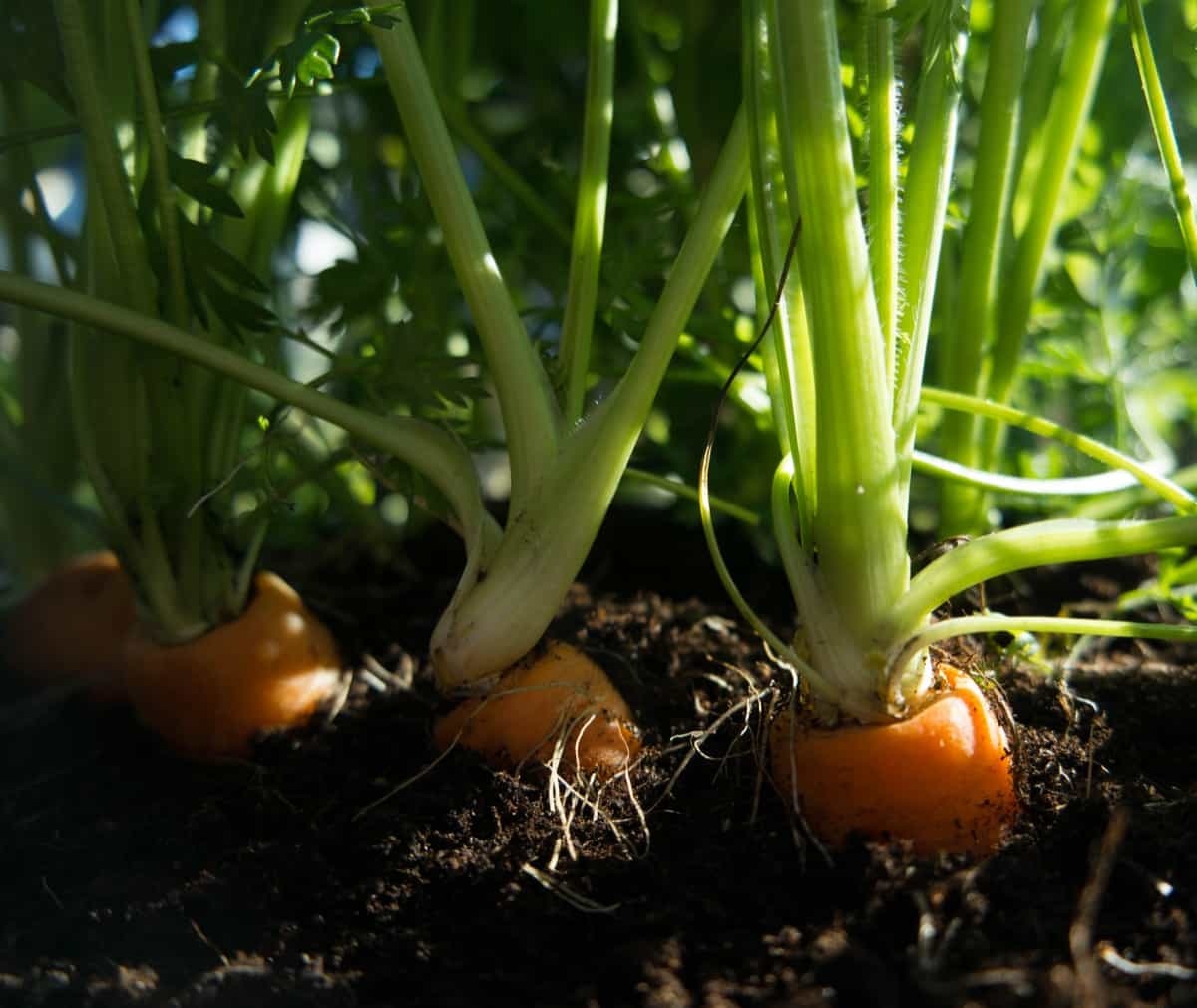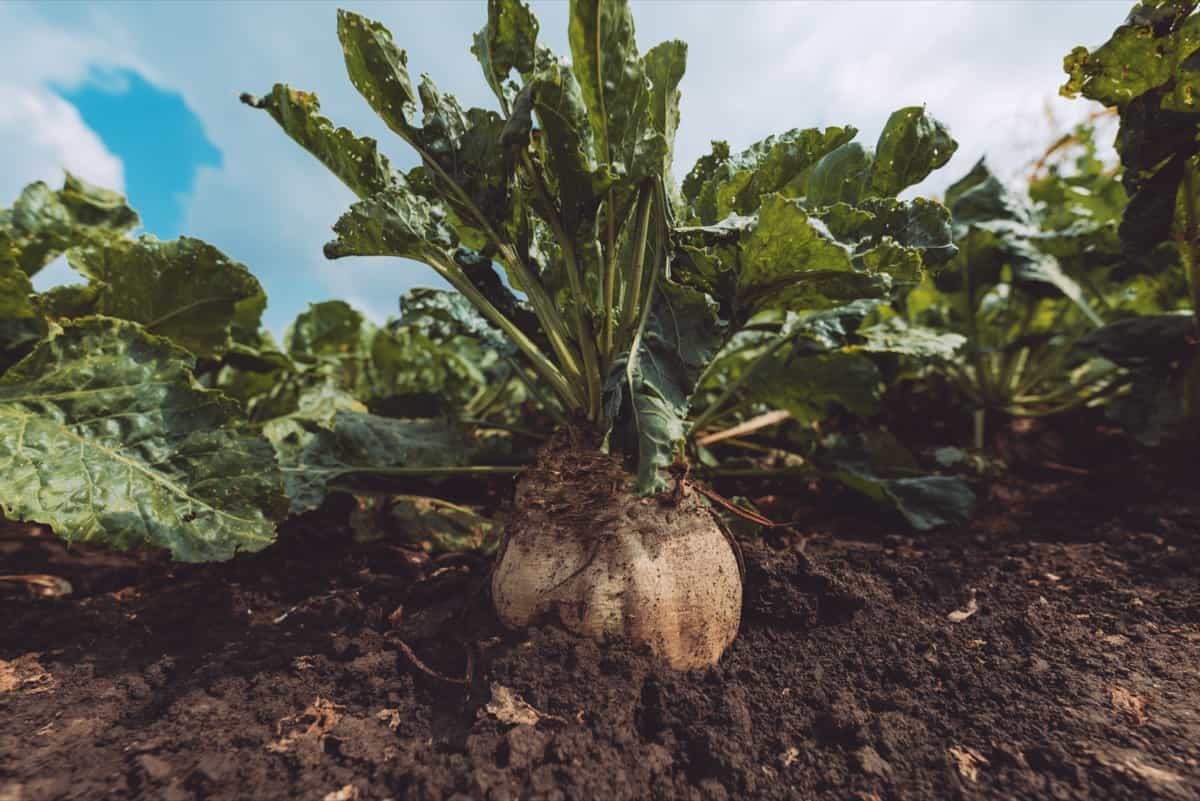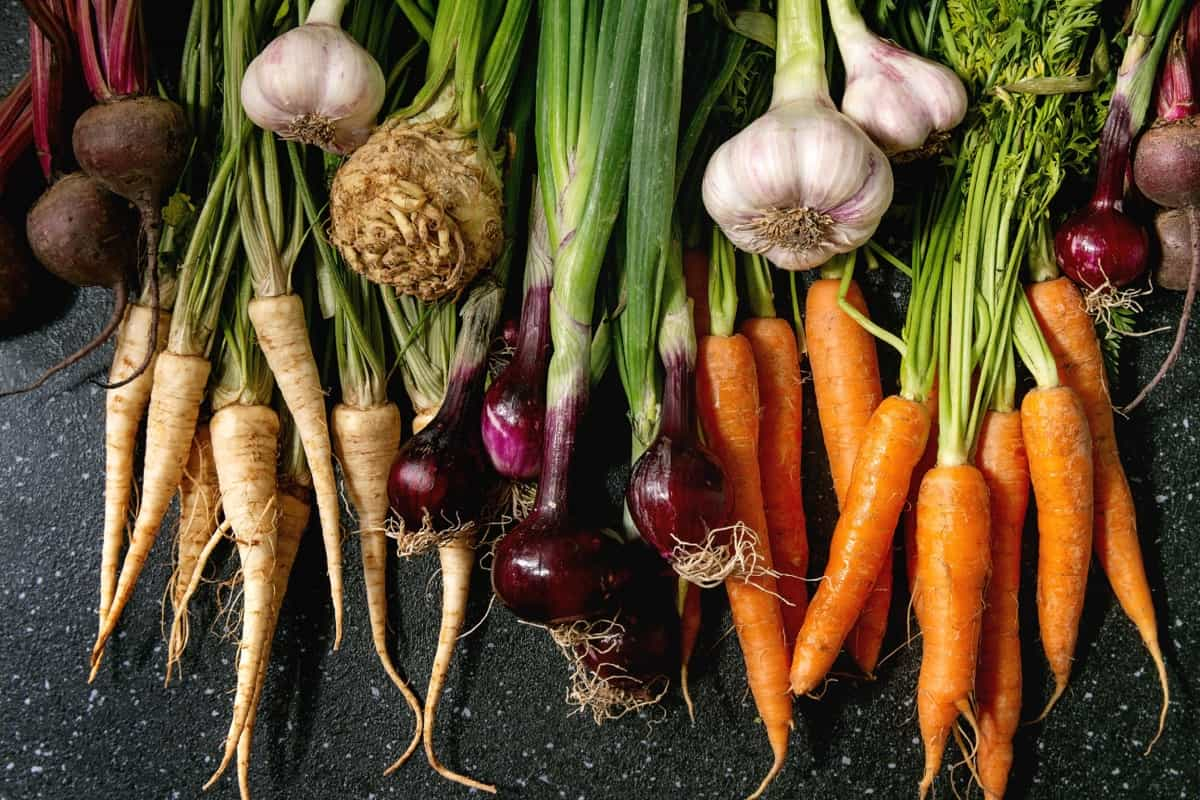While often hardy, root vegetables can fall victim to a variety of common problems that can impact their health, appearance, and productivity. These problems can range from diseases causing misshapen or decayed vegetables to pests causing damage to the roots or the plant’s above-ground parts.

As an enthusiast or a professional gardener, understanding these common problems can help you take appropriate actions to protect your root vegetable plants and ensure a healthy and bountiful harvest. This article aims to provide an in-depth look at 10 of these common issues and tips on fixing, treating, and offering solutions. It will also touch upon home remedies for plant diseases, elaborate on vegetable diseases and their control, and how to fix root diseases.
10 Common Problems With Root Vegetable Plants
Misshapen or Deformed Root Vegetables
One of the most common issues you might encounter with root vegetables is deformed or misshapen roots. This problem often stems from improper soil conditions, particularly compacted or rocky soil, that limit the root’s growth and force it to take on an irregular shape. To solve this problem, you usually need to add organic material like compost or well-aged manure to the soil.
This helps enhance its quality and nutrient levels. For rocky soil, you can manually remove larger rocks or consider building raised beds filled with good-quality topsoil. To prevent further occurrences, practicing crop rotation and avoiding growing root crops in the same spot each year is crucial to keep the soil structure optimal.
Root Vegetables With Rot or Decay
Rot or decay is another prevalent problem with root vegetables, commonly caused by fungal diseases or improper watering practices. It’s essential to know how to control these diseases and their effects. To fix rot or decay, remove and dispose of any infected plants to prevent the disease from spreading.
Remember, home remedies for plant diseases can often be a vital solution. For example, applying a solution of baking soda and water can help to inhibit fungal growth. In the case of overwatering, ensure that your plants receive the appropriate amount of water and that the soil has proper drainage to prevent waterlogged conditions that can contribute to rot.
Pests Damaging Root Vegetables
Several pests, including wireworms, nematodes, and cutworms, can damage root vegetables. These pests often feed on the roots of the plants, leading to weakened plants and reduced yields. To fix this issue, introduce beneficial insects such as ladybugs and predatory nematodes, which are natural predators of these pests.
Planting trap crops can also lure pests away from your main crops. Remember, good garden sanitation practices, such as removing plant debris and turning over the soil in the fall and spring, can help control the pest population by destroying their breeding grounds.
Root Vegetables With Shallow Root Systems
Some root vegetables may develop shallow root systems if the soil is too compact or lacks essential nutrients. This issue can lead to weak plants and unable to support their weight. To solve the issue, add organic matter to the soil for better structure and nutrient quality. Ensure you provide your plants with the proper amount of water and nutrients, as too much or too little can result in shallow root development. Also, consider using a broadfork or similar tool to loosen the soil and encourage deeper root growth.
In case you missed it: 8 Common Problems with Taro Root Plants: Treatment and Solutions

Root Vegetables With Cracked or Split Skin
Cracked or split skin on root vegetables can be caused by inconsistent watering practices, sudden changes in temperature, or nutrient deficiencies. To fix this problem, ensure your plants have a consistent water supply. In hot or dry weather, water more often. Using organic mulch around plants helps control soil temperature and moisture. If a nutrient deficiency is suspected, consider testing your soil and adjusting your fertilization practices accordingly.
Root Vegetables Affected by Nematodes
Nematodes are microscopic worms that can cause significant damage to root vegetables. They feed on the roots, causing knots or galls to form and inhibiting the plant’s ability to take up water and nutrients. To control nematodes, consider planting nematode-resistant varieties or using crop rotation to disrupt their life cycle. Adding organic matter to the soil aids in reducing nematode populations by promoting the development of helpful microbes.
Root Vegetables With Nutrient Deficiencies
Nutrient deficiencies can lead to problems in root vegetables, from stunted growth to yellowing leaves. The lack of specific nutrients like nitrogen, phosphorus, or potassium can severely affect the plant’s health. To fix nutrient deficiencies, consider testing your soil to determine what nutrients it lacks. You can then amend your soil with appropriate organic matter or use a balanced fertilizer to replace the missing nutrients. Always follow the manufacturer’s instructions when applying fertilizer to avoid damaging your plants.
Root Vegetables With Excessive or Inadequate Watering
Both overwatering and underwatering can cause problems for root vegetables. Excess watering causes root rot, while insufficient watering leads to stunted growth and lower yields. To fix this issue, ensure your plants receive the right water. You can do this by regularly checking the soil moisture levels and adjusting your watering schedule. A drip irrigation system can also help provide a consistent water supply and prevent overwatering.
Root Vegetables With Hollow or Pithy Centers
A sudden increase in water supply or temperature fluctuations can cause hollow or pithy centers in root vegetables. This issue often affects vegetables like radishes and carrots, resulting in an unpleasant texture when eaten. To fix this problem, ensure your plants receive a steady water supply and avoid sudden temperature changes, particularly during the growing period. Mulching around your plants can help regulate soil temperature and maintain consistent moisture levels.
Root Vegetables With Poor Storage Qualities
Finally, root vegetables sometimes have poor storage qualities, leading to premature softening or decay. This issue can be due to several factors, including improper harvesting, storage conditions, or damage during harvest. To improve the storage qualities of your root vegetables, ensure you are harvesting them at the right time and handling them carefully to avoid causing damage.
Keep your harvested vegetables in a cool, dark, well-ventilated place and regularly inspect them for any signs of decay or disease. Remember, proper storage helps prolong the shelf life of your root vegetables and maintains their nutritional value and flavor.
In case you missed it: A Comprehensive Guide on How to Identify and Treat Root Rot in Pothos

Conclusion
Growing root vegetables can be a rewarding experience, but it can also come with its share of challenges. Understanding the common problems associated with these plants and how to fix them can improve your chances of a successful harvest. Remember, prevention is often the best form of control, so always ensure your plants are in the best possible growing conditions and close your eyes for early signs of trouble. Whether tackling nutrient deficiencies or combatting nematodes, every problem has a solution.
- Feed Your Flock for Less: Top 10 Tips to Save on Chicken Feed
- Ultimate Guide to Ossabaw Island Hog: Breeding, Raising, Diet, and Care
- Hatching Answers: The Top 10 Reasons Your Chickens Aren’t Laying Eggs
- Eggs and Economics: Breaking Down the Cost of Raising Backyard Chickens
- Defend Your Greens: Proven Methods to Keep Iguanas Out of Your Garden
- Ultimate Guide to Cinnamon Queen Chicken: A Comprehensive Guide for Beginners
- Ultimate Guide to California Tan Chicken: Breeding, Raising, Diet, Egg-Production and Care
- Ultimate Guide to Marsh Daisy Chicken: Breeding, Raising, Diet, and Care
- 10 Types of Chicken Farming Businesses You Can Start for Profits